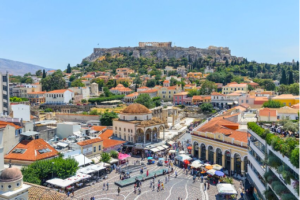The parents were immigrants from Korea…
They barely spoke English. But by the time I knew them, they had a small business. A sandwich shop across the street from Agora’s first headquarters, in a predominantly African American neighborhood in East Baltimore.
The shop was open from 6:00 in the morning to 7:00 in the evening. It was where our employees bought breakfasts, lunches, and sometimes packaged dinners when they were working late. The parents were there every day. Six days a week. From opening to closing. Their kids were there all day on Saturdays and on weekdays. When the eldest child went to college, she worked only Saturdays and her sisters picked up the slack. After she graduated, she worked full-time while the next child went off to college. And when that child graduated, she went on to pursue her career.
All three children went on to become doctors or lawyers. And when they were making the big bucks, they bought their parents a nice house where they could live out their retirement in comfort and happiness, with lots of time for the grandkids.
 MarkFord
MarkFord



